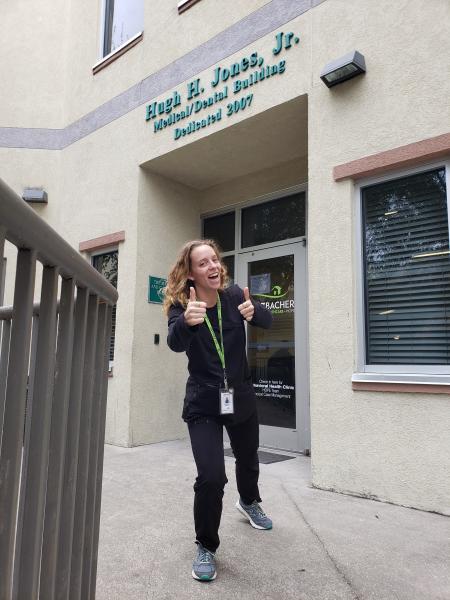Addressing Homelessness
When it comes to empathy and understanding, I feel like many of us, myself included, start from a place of ignorance. Until you begin to ask questions and respectfully listen to others recount their experiences the picture will never become clear. For example, take the issue of homelessness.
 Growing up in Arlington, Virginia, I didn’t come in contact with many individuals experiencing homelessness. Though I know they existed, homeless individuals were not as prevalent or visible in my hometown. On the occasion that I would be approached and asked to spare some change or provide assistance if I could, I used to find myself perplexed and almost paralyzed not really knowing what to do. I didn’t understand how at the age of 15 I could get a job, but others could not. I wasn’t privy to all of the variables at play that can impact an individual's situation. What I lacked was the knowledge that in order to even be considered for a position often times you need a few things first, namely an address. Without a home you have no address, without an address you can’t open a bank account, without either of those things you cannot obtain a job, which in turn would perpetuate the cycle and not allow for mobility off of the street.
Growing up in Arlington, Virginia, I didn’t come in contact with many individuals experiencing homelessness. Though I know they existed, homeless individuals were not as prevalent or visible in my hometown. On the occasion that I would be approached and asked to spare some change or provide assistance if I could, I used to find myself perplexed and almost paralyzed not really knowing what to do. I didn’t understand how at the age of 15 I could get a job, but others could not. I wasn’t privy to all of the variables at play that can impact an individual's situation. What I lacked was the knowledge that in order to even be considered for a position often times you need a few things first, namely an address. Without a home you have no address, without an address you can’t open a bank account, without either of those things you cannot obtain a job, which in turn would perpetuate the cycle and not allow for mobility off of the street.
Currently, I find myself in a unique position. As part of the National Health Corps, I have been given the opportunity to serve at the Sulzbacher Center in downtown Jacksonville. The Sulzbacher is a non-profit organization whose mission is to provide opportunities for homeless and at-risk men, women, and children to find support through a myriad of services in order to restore hope, self-sufficiency, and enable individuals to get back on their feet. Unlike other homeless shelters, the Sulzbacher Center takes a comprehensive approach to address the issue of homelessness. Instead of simply providing a meal and a place to rest your head, Sulzbacher offers a continuum of care that encompasses all aspects of homelessness including housing, income, and healthcare. In a single year, more than 800 individuals are placed into permanent housing, close to 8000 individuals receive medical care, and over 500,000 meals are provided for the community.
As part of my service term thus far, I have contributed to this organization by meeting with clients following health appointments and assessments to assist them in enrolling in programs to obtain free medication. In doing so, both the individuals and the organization are able to benefit. These individuals, because one more cost is eliminated, are able to receive care and take charge of their own health outcomes without the added stress of contemplating how to afford it. By reducing costs and obtaining medications through programs instead of out of pocket, Sulzbacher is able to save money and allocate more resources to aid a larger number of individuals.
My naive thoughts regarding homelessness have completely changed. I am no longer perplexed when asked for assistance. I am armed with knowledge. Not only have I grown and learned more about the complexity of homelessness and the challenges individuals face to adjust and get back on their feet, but I am more knowledgeable about what resources are available and how to obtain them. I have also discovered my ability to play a role in addressing this issue.

This post was authored by NHC Florida member Emily Parr.
Emily serves at Sulzbacher as a Patient Navigator.